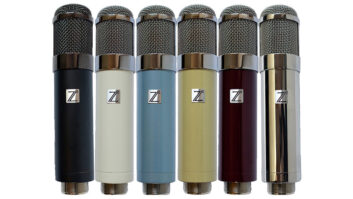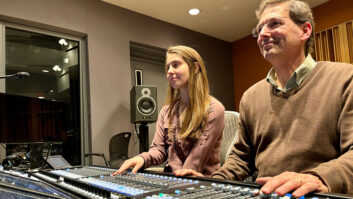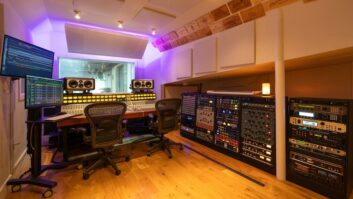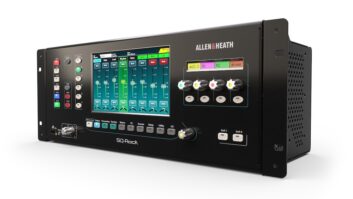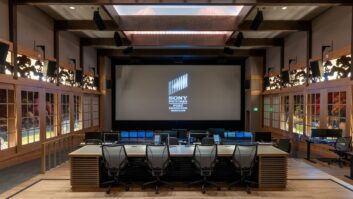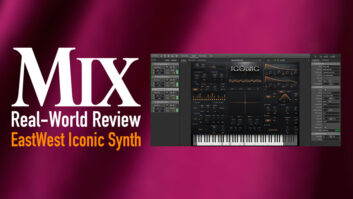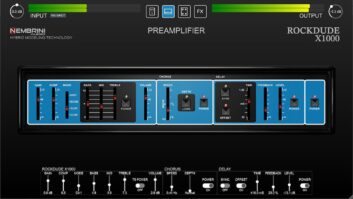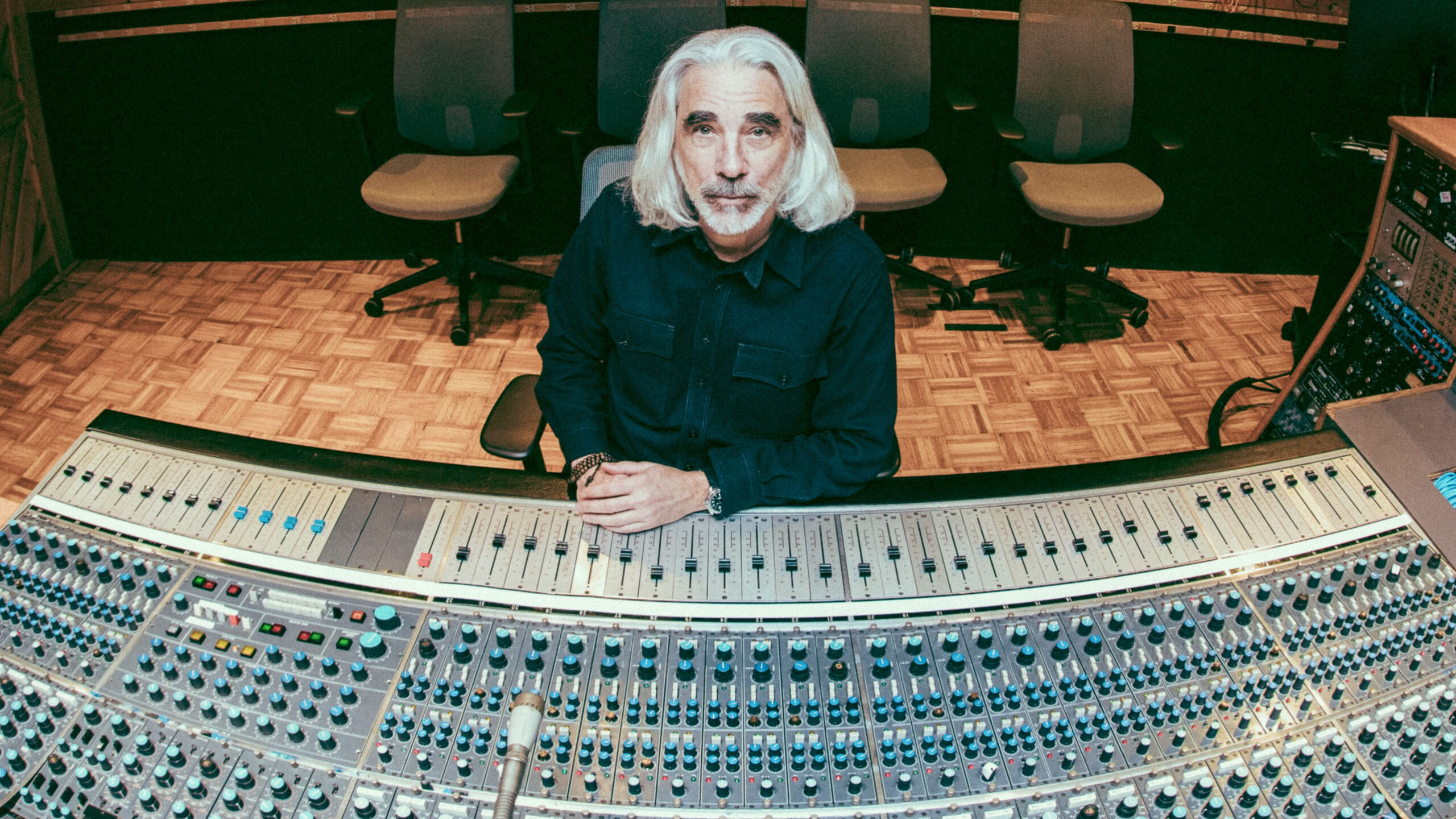
New York, NY (May 6, 2024)—William Garrett knows a thing or two, to borrow a TV commercial tagline, because he truly has seen a thing or two. An independent music producer and recording/mix engineer for more than four decades, he’s also worked for a couple of big music companies, and is as happy collaborating on the vibe of a facility as he is designing the technical spec.
He has built his own rooms, Electracraft Music Works, in New York and Los Angeles, and has played a major role in putting together a high-end recording facility at Spotify Studios At Mateo, the streamer’s production complex in Downtown L.A. He is, in short, a journeyman audio guy, able to turn his hand to anything and everything—and he excels at all of it.
The eight-year stretch at Spotify, Garrett says, was something of an audio dream job, bringing all his skills to the fore, especially through his involvement with the design and construction of the company’s flagship recording studio, where he consulted on the choice of studio design team, equipment and instrument selection and purchase, and the overall aesthetics, technical design and acoustics. He went on to manage studio operations and work on a slew of music projects at the facility, which received the 2023 NAMM TEC Award for Best Studio Design Project.
“What I loved was that it was every part of my expertise all in one job,” says Garrett, who parted ways with Spotify at the tail end of 2023. “It was producing, engineering and mixing, but it was also about creating a vibe, choosing instruments, helping build a studio, being the host, facilitating the artist’s creativity. I don’t know many jobs where you have an opportunity to do all that at one time. I put everything that I had learned in my 40-plus years’ experience into that room, working with an amazing team of people. It was a wonderful experience, and I’ll always be grateful for those years.”
Garrett joined Spotify as Senior Music Producer for the 2016 launch of Spotify Singles. The program brought artists into a studio for a day to record a reimagined version of an original track, plus a cover song. Working with the likes of Elton John, Ed Sheeran, Brandi Carlile, John Legend, Alicia Keys, Sting, Jack White, Yo-Yo Ma, Michael Bublé, Jennifer Lopez and many others, Garrett supervised tracking and mixing of more than 900 tracks for the series, which currently boasts over 8.7 billion streams. “Spotify Singles made me realize that my sweet spot is being in the room when all this creativity is happening,” he says. “To see incredibly talented people create right in front of you and facilitating that creation is so rewarding.”
The Norah Jones Spotify Singles sessions turned out to be something special, bringing Garrett full circle with the artist. One of the instruments in the L.A. studio’s collection that he helped curate was the 1960s-era Steinway upright piano on which he recorded Jones’ 2000 demos at Sony/ATV Music Publishing in New York, where he worked for 15 years, up until the facility shuttered in 2015.
“After Sony/ATV closed, I had that piano at home, where my daughters practiced their piano lessons on it,” he says. “In September of last year, I recorded a session with Norah Jones and Remi Wolf and said, ‘Here’s the piano that you played 24 years ago.’ She started playing and said, ‘It sounds amazing.’ So she cut a track on it. She joked that my hair was not the color it is now when we first started working together.”
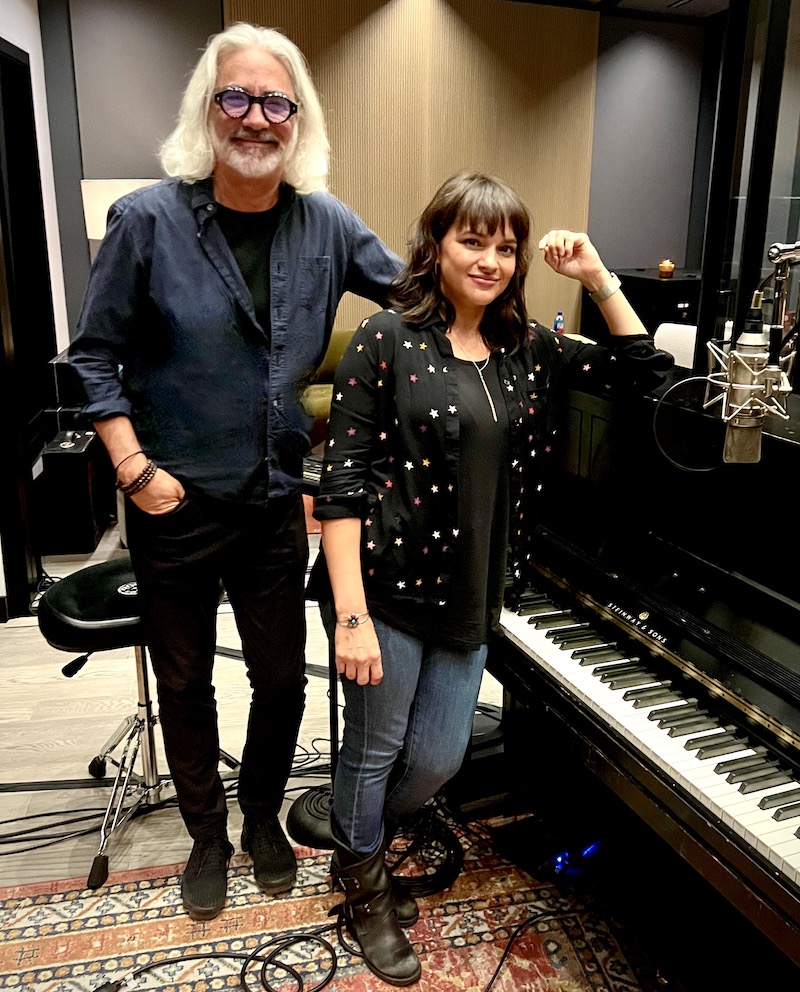
Garrett worked on sessions at numerous iconic Manhattan facilities, many of them long defunct, after a 1987 move from Boston, where he attended Berklee College of Music. “I did a ton of stuff at Mediasound, Hit Factory, Sound on Sound and Right Track when I first got to New York. I did some of the last sessions at RCA Studios on 60th Street. It used to be a joke—don’t let William work at your studio because it’ll close down!”
he laughs. [Note: A hot Manhattan real estate market, ultimately, was behind the closure of a number of studios starting in the 1990s.] When he took the Spotify Singles gig, Garrett decided to close his Electracraft studios. “We were doing what I used to call high-end pre-production there,” he explains. “It was basically songwriting with top songwriters and artists who wanted to go to a vibe-y small studio where they could hang out and work.” His current plans are to build a mix room in Long Island City, where he lives, across the East River from Manhattan.
Until then, there are plenty of studio options in town for an itinerant freelancer. “I had a chance to look at a bunch of studios at the end of last year, and there are some great places,” he says, noting in particular Studio G and Electric Garden in Brooklyn, and Reservoir, formerly Skyline. For much of 2023, his final year at the streamer, Garrett supervised and managed Spotify Studios’ operations out of Studio B at the Power Station in New York. He has a long history with the facility, including the period it was known as Avatar. Among various projects, he says, “I recorded and mixed the orchestral film soundtrack for American Psycho with John Cale in Studio A” in 1999.
Last December, Garrett was asked to mix a live stream for Glasshaus Presents, which hosts performances at an intimate space in Greenpoint, Brooklyn, featuring R&B singer Bilal with Questlove, Common, Robert Glasper and Burniss Travis. “The performance was unbelievable,” he recalls. However, it was nearly impossible to monitor the recording because the Pro Tools setup was in the same space as the performance, so he and Carl Bespolka, his co-engineer, headed to Power Station the following morning, just hours before the performance was made available for streaming.
“I was really happy that I could jump into a studio and at least listen to make sure the mix was solid,” Garrett says. “Everybody was so excited about the livestream mix that they asked me to mix it for digital and vinyl releases, which I’ve been doing for the last couple of months.” A performance video is also in the works.
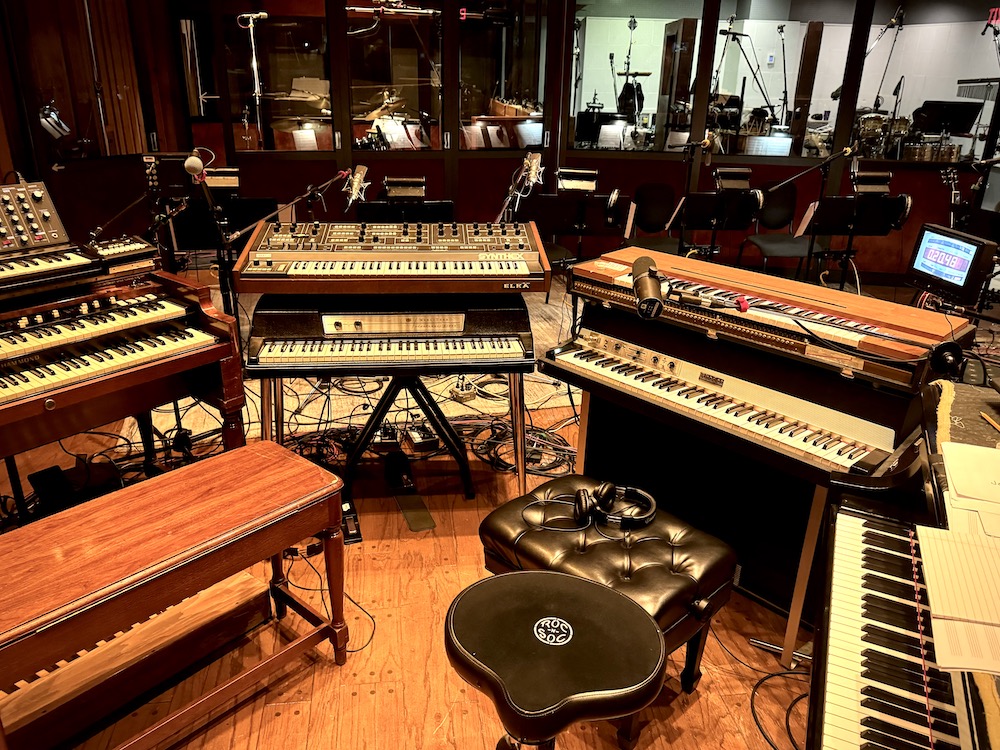
Another high point of Garrett’s post-Spotify career was a recent all-day session with Jon Batiste and a 13-piece band recording a soundtrack, again at the Power Station, for SNL 1975, a behind-the-scenes dramatization of the premiere of Saturday Night Live, directed by Jason Reitman. Batiste also plays Billy Preston, the show’s first musical guest, in the film.
“The director and Jon wanted it to sound like 1975, so Jon asked me to record to two-inch, 24-track tape,” says Garrett, who has a considerable history of working with Batiste. “There was no channel unused on the 72-input Neve VR. All the inputs went to Pro Tools, then we submixed what we needed to the tape machine, to stereo tracks. We were listening off the repro head and dumping the tape machine output back into Pro Tools.”
The studio techs put a camera on the Studer tape machine counter so Batiste could monitor how much time was left on each reel. “Everybody would be improvising, and he’d be watching it,” Garrett says. “He ended one song 14 seconds before the reel ran out! We recorded 4 hours and 50 minutes of music, starting at eight in the morning and quitting about seven at night.”
One of the nicest compliments Batiste paid him, he says, was that he checked about a minute of playback at the start of the session, then didn’t listen again until the session was over: “I was really knocked out; he trusted me that it was all good.”
